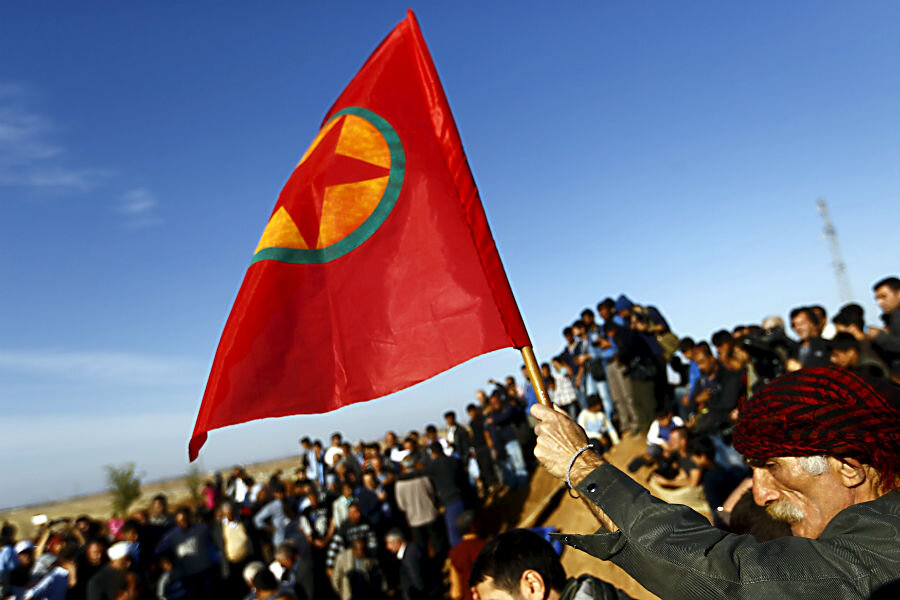Shut out of peace talks, Kurds seek self-rule in northern Syria
Kurdish officials said Wednesday they intended to establish a federal region in northern Syria after being excluded from UN-brokered peace talks in Geneva.
A spokesman for the Syrian Democratic Union Party (PYD) told The Associated Press that the group is not hoping to create an exclusively Kurdish zone, but rather “an all-inclusive area with representation for Turkmen, Arabs and Kurds in northern Syria.”
The proposal was quickly dismissed by representatives of the Syrian government and opposition in Geneva.
Turkey, which faces a renewed Kurdish insurgency at home, also dismissed the Kurdish declaration out of Syria. Turkey is adamant that Kurdish groups in Syria should be excluded from peace talks, even though both Russia and the US have cooperated with them in the fight against the self-declared Islamic State.
It is estimated that 10 to 15 percent of Syria’s prewar population of 17 million are Kurdish; most are in the north along the border with Turkey. A semi-autonomous Kurdish region has emerged in the north during the five-year civil war, though its territory isn't contiguous.
Supported by US-led airstrikes, Kurdish militia in Syria have been effective in taking back territory from IS. This has seeded tensions between the US and Turkey, which sees no daylight between militant Kurdish groups in Turkey and those across the border in Syria.
A Wednesday summit of 200 representatives from three Kurdish districts in Syria discussed the federal plan. Kurdish official Idris Nassan said that he expected a democratic federalism system would be endorsed by his fellow regional leaders, according to Reuters. Such a system would expand “the framework of self-administration which the Kurds and others have formed” in northern Syria, Mr. Nassan said.
Under this proposal, three Kurdish-dominated districts would manage their own affairs as part of a federation. There are parallels with Iraqi Kurdistan which is home to 8 to 10 million people and has been largely autonomous since the early 1990s, the result of US-led intervention to create a no-fly zone against former dictator Saddam Hussein's forces.
Representatives of Turkey, Syria, and the Syrian opposition all expressed resistance to the Kurds’ plan.
An anonymous Turkish official said that “Unilateral moves carry no validity,” and that it should be up to the Syrian people to decide on the country’s structure, to be “formulated through the political transition process,” according to the AP.
“What someone declares on their own, far away from the Syrian people, is unacceptable,” Syrian opposition member Riad Naasan Agha told the AP.
While a tentative ceasefire between the government and opposition in Syria remains in effect, the peace talks in Geneva may not reach a resolution for some time. Russia’s role in the conflict appears to have shifted, however, following President Vladimir Putin’s partial withdrawal of Russian troops in Syria.






